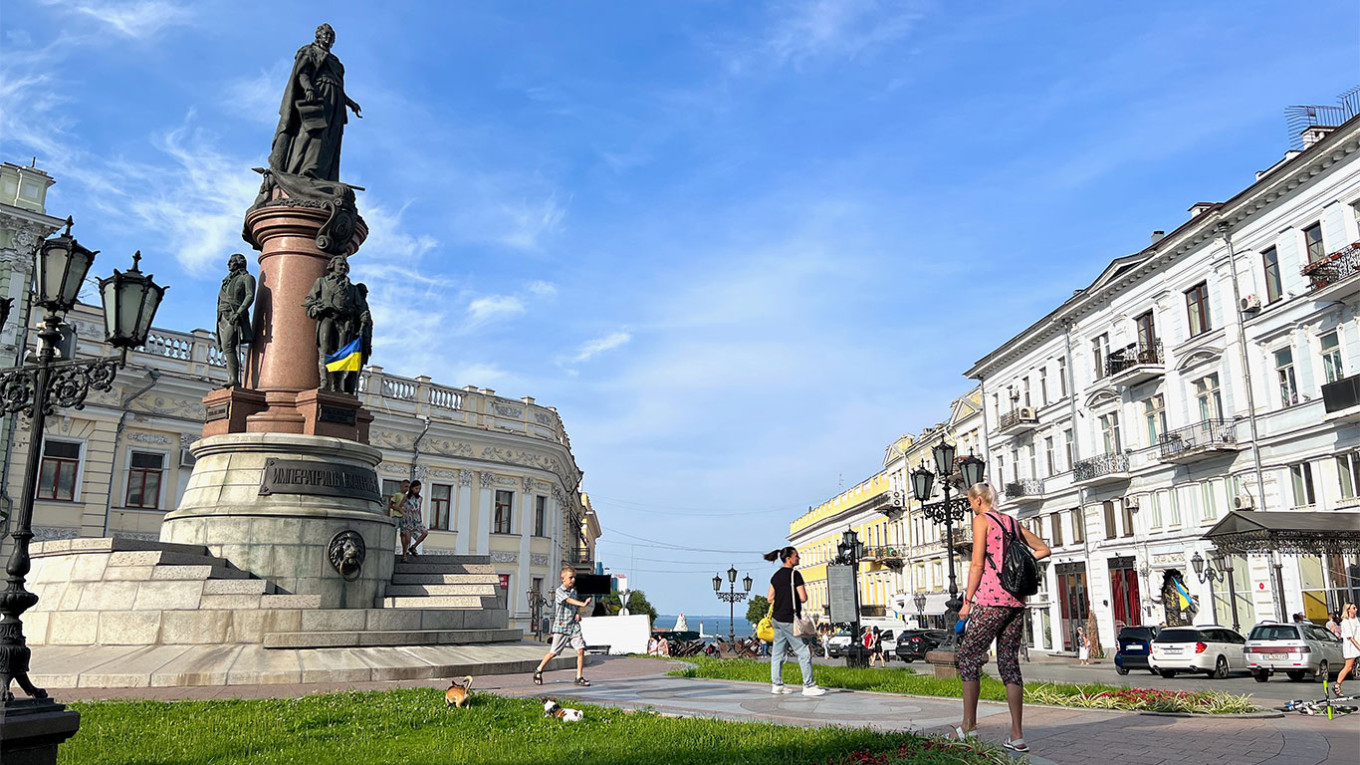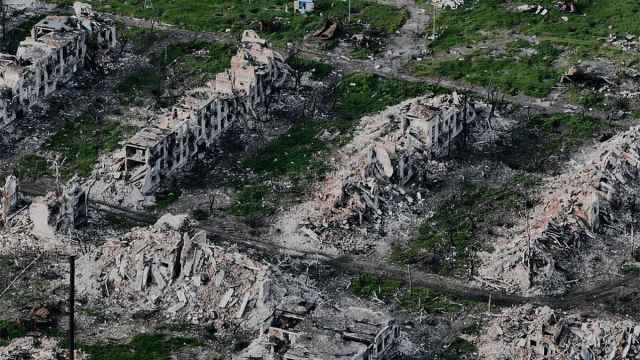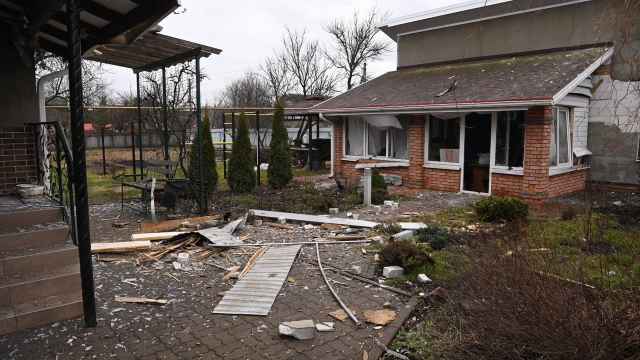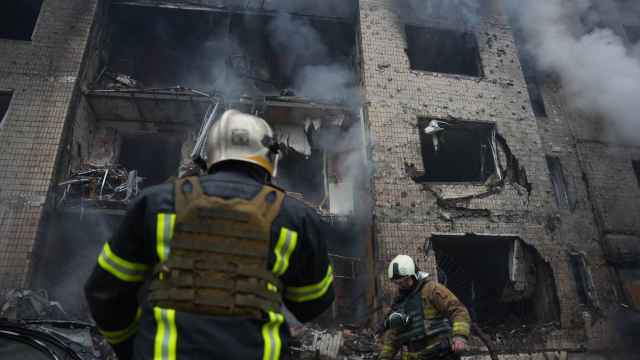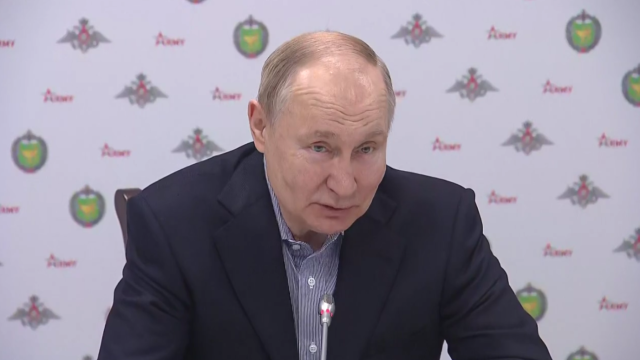ODESA, Ukraine — As well-dressed patrons gathered outside the Opera and Ballet Theater in this Black Sea port city for a recent afternoon performance, there were telltale signs of the ongoing war with Russia.
The crowd, a mix of men and women wearing military uniforms as well as suits and dresses, was much smaller than in pre-war times. Regulations meant it could not exceed the capacity of the building’s air raid shelter — and instructions were read out before the show about what to do if sirens sound.
Perhaps most telling was the complete absence of Russian composers on the theater’s summer concert calendar.
Russia’s invasion of Ukraine has sparked calls for a broad effort to “de-russify” the country’s urban and cultural spaces. But in Odesa, where Russian cultural heritage is deeply intertwined with the city’s identity — and the vast majority of locals speak Russian — this issue is particularly complicated.
While the current focus of most Ukrainians is undoubtedly the bloody fighting in the country’s east, there is a lively debate among Odesa’s older intelligentsia — who were born under the Soviet Union but have since embraced Ukrainian independence — about the place of Russian culture, how it is displayed and how it is consumed.
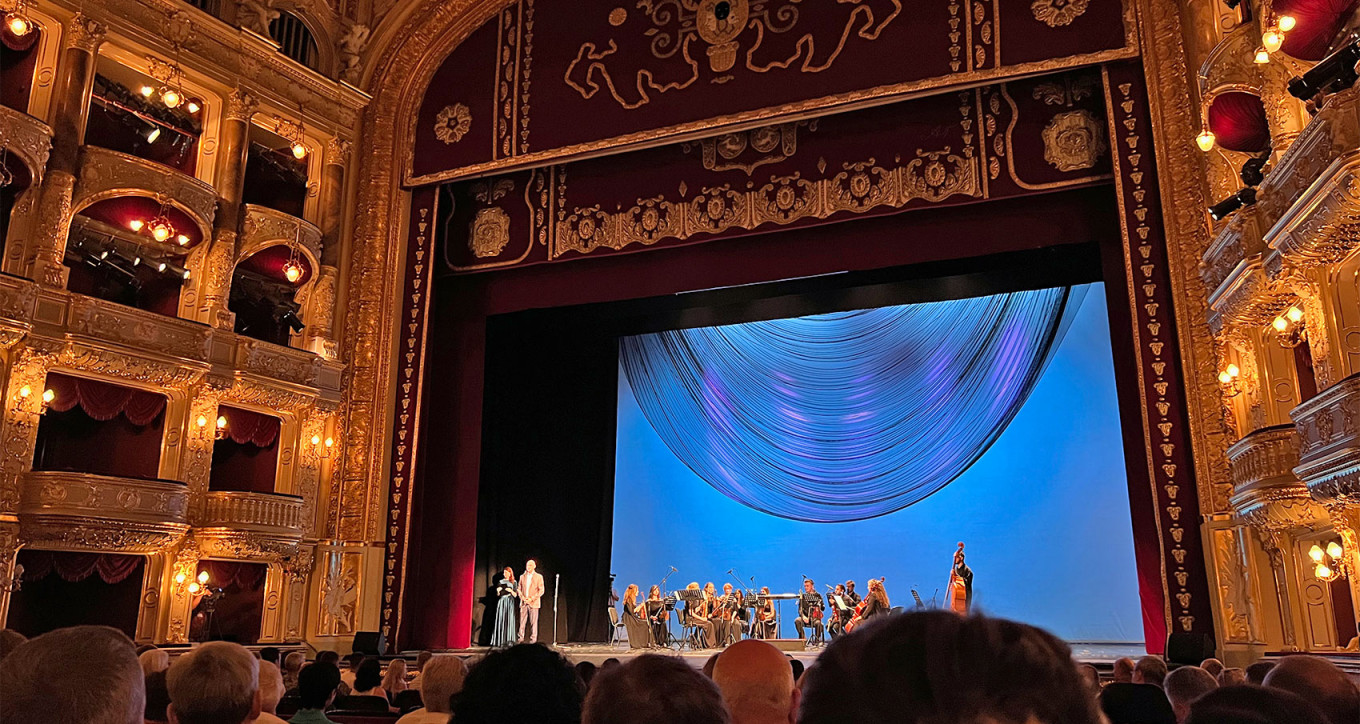
At the heart of these discussions is the Monument to the Founders of Odesa, famous for its towering bronze statue of 18th-century Russian ruler Catherine the Great.
With a view onto the Black Sea and the city’s port — which is currently blockaded by the Russian Navy — the monument is a stone’s throw from Odesa’s iconic Potemkin stairs, named after Catherine’s lover and governor of the region.
Over 11,000 Ukrainians have called for the monument’s demolition in an online petition, the description of which accuses the empress of “the genocide of the Ukrainian and Crimean Tatar people… and a policy of violent reunification.”
Speaking after the performance by clarinetist Julian Milkis at the Opera and Ballet Theater, art critic Ute Kilter, 64, was in favor of toppling Catherine.
“It’s a newly built thing, it’s fake, somebody made a lot of money from it,” she said, referring to the monument’s reconstruction in 2007 almost 90 years after the original was dismantled by the Bolsheviks.
For Boris Khersonsky, 71, an Odesa native and one of Ukraine’s most prominent Russian-language poets, it is this same legacy of Soviet-era ideological destruction that warrants restraint.
“That's exactly what the Bolsheviks did, and the last thing we should do is follow in their footsteps,” said Khersonsky. “This is one of the most beautiful monuments of the city. To destroy is easy, but to build something just as beautiful is difficult.”
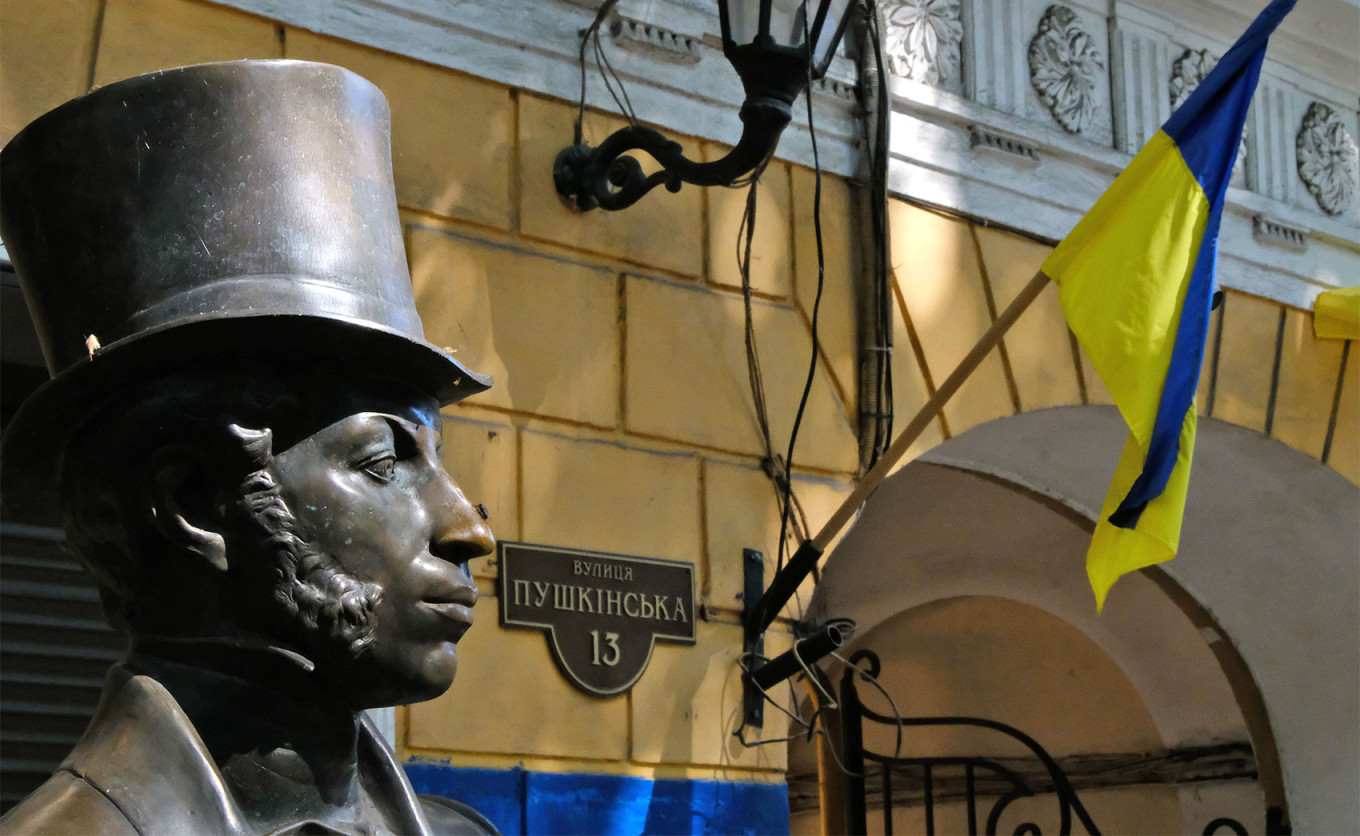
A city with a rich artistic and literary heritage, Odesa is famous for its diverse history. French, Italian, Russian, Ukrainian and Jewish communities are among those that have each woven themselves into the city’s cultural fabric.
Under the Russian Empire, ties to Russia were strong. “They say sometimes that Odesa is not a city, but a whole country,” said Khersonsky. “But if it's a country, it needs a capital, and the cultural capital of Odesa was Moscow.”
Of the many Russian writers who spent time in Odesa, perhaps most famous was poet Alexander Pushkin, who lived here in exile for 13 months in the 19th century.
Today, Pushkin has become another lightning rod for those seeking de-russification. In addition to several statues, Pushkin’s name graces a central Odesa street where there is a small museum about his time in the city.
Pushkin Street is a particular target of those seeking de-russification, and a campaign is gathering momentum to rename the thoroughfare.
Multimedia artist and sculptor Mikhail Reva, 67, whose works can be found all over Odesa and who assisted in the reconstruction of the Monument to the Founders of Odesa in the early 2000s, dismissed the idea entirely.
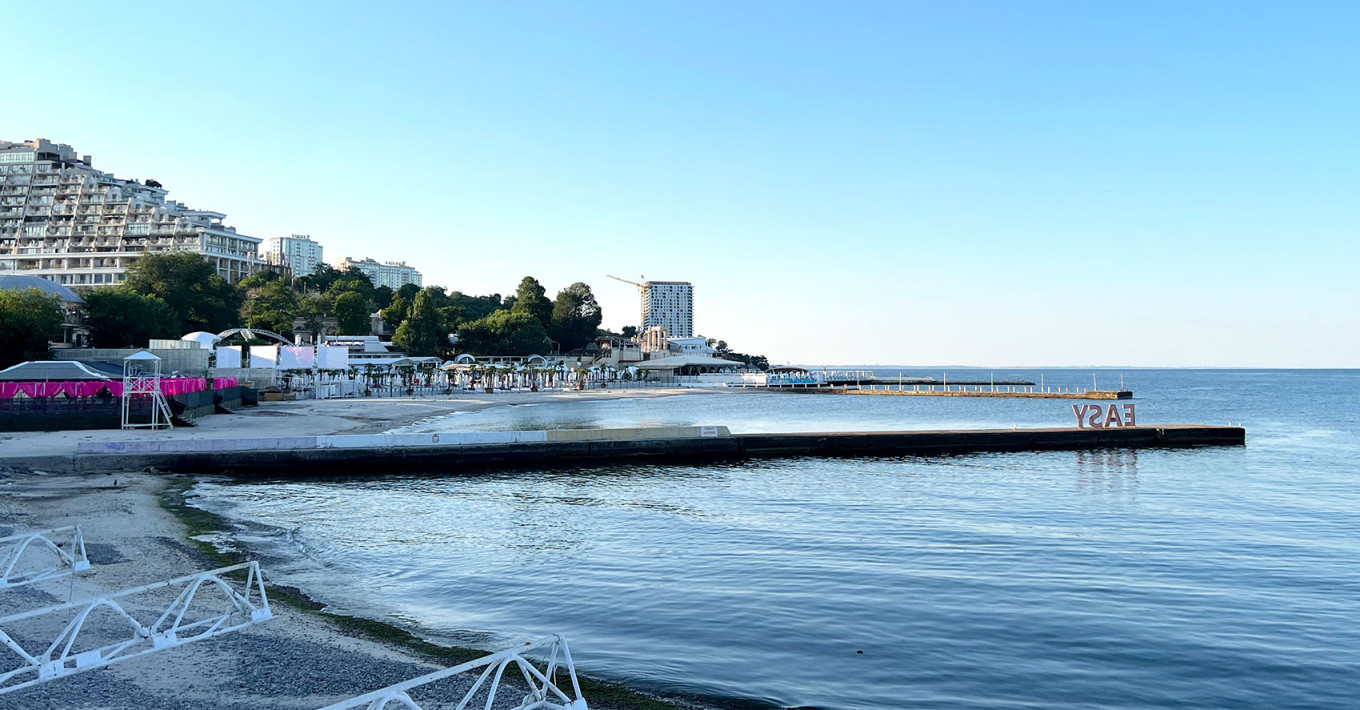
For Reva, Odesa’s cultural heritage is European and — particularly amid the Russian invasion — defined in opposition to Russia. “Odesa was always Europe, a window to Europe, a free city. Even in the Soviet Union,” he said.
Despite the passions aroused by de-russification, many Odesans said the issue paled in comparison to the suffering Russia’s war continues to inflict on Ukrainians.
While there appears to be little immediate danger of a Russian assault on the city, the area is regularly targeted by Russian missiles. One strike earlier this month killed 18 civilians in an apartment building and two holiday camps.
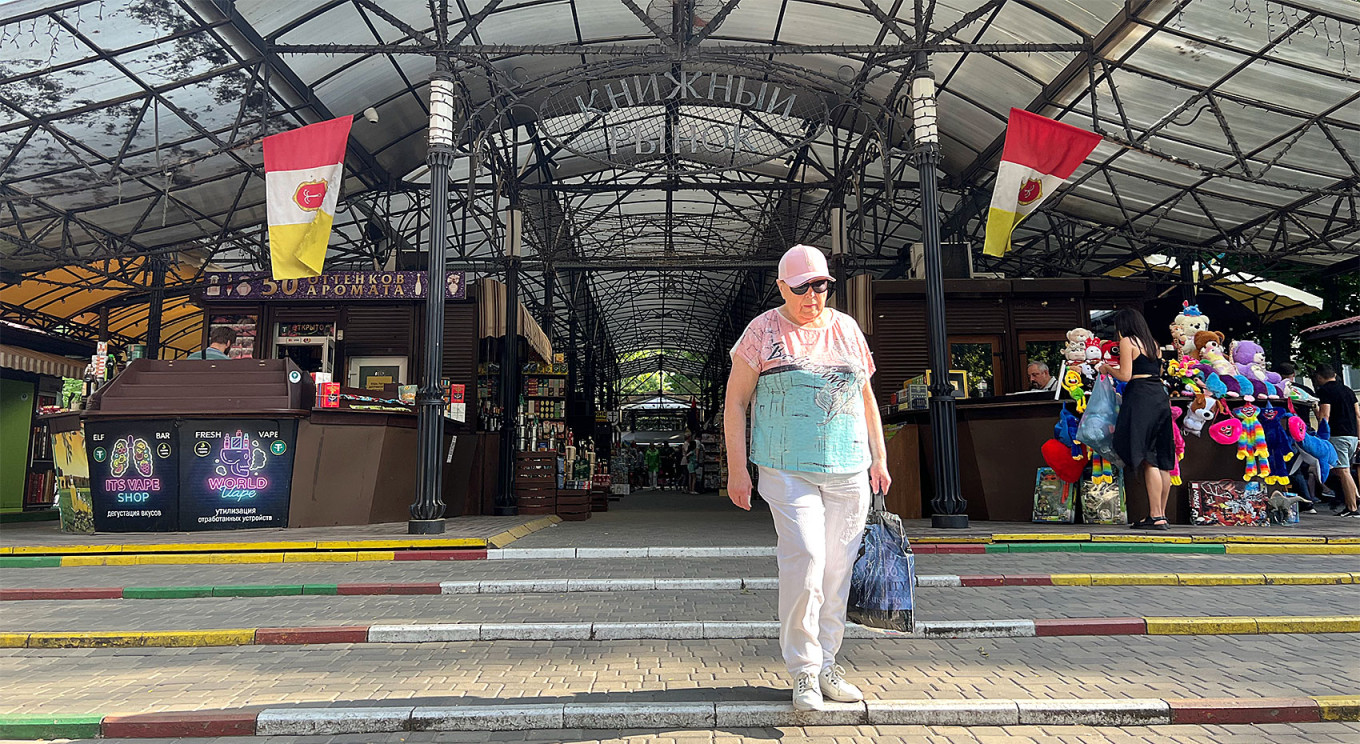
“They turned Mariupol into Aleppo, destroyed so many lives, and we should be arguing right now about the rights of Russian culture? They stormed in and violated all our rights on the pretext of liberation,” said Reva.
Even if the heated emotions of wartime eventually cool down, Khersonsky conceded that Russia’s invasion has likely changed Odesan culture forever.
“De-russification will pass through, this is unavoidable,” he said.
“Some of this, unfortunately, will be needless, but that’s what happens when you invade with tanks and bomb cities.”
A Message from The Moscow Times:
Dear readers,
We are facing unprecedented challenges. Russia's Prosecutor General's Office has designated The Moscow Times as an "undesirable" organization, criminalizing our work and putting our staff at risk of prosecution. This follows our earlier unjust labeling as a "foreign agent."
These actions are direct attempts to silence independent journalism in Russia. The authorities claim our work "discredits the decisions of the Russian leadership." We see things differently: we strive to provide accurate, unbiased reporting on Russia.
We, the journalists of The Moscow Times, refuse to be silenced. But to continue our work, we need your help.
Your support, no matter how small, makes a world of difference. If you can, please support us monthly starting from just $2. It's quick to set up, and every contribution makes a significant impact.
By supporting The Moscow Times, you're defending open, independent journalism in the face of repression. Thank you for standing with us.
Remind me later.


